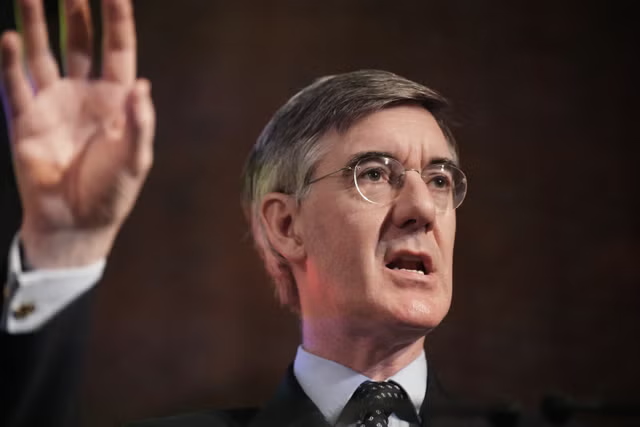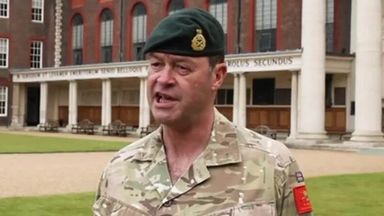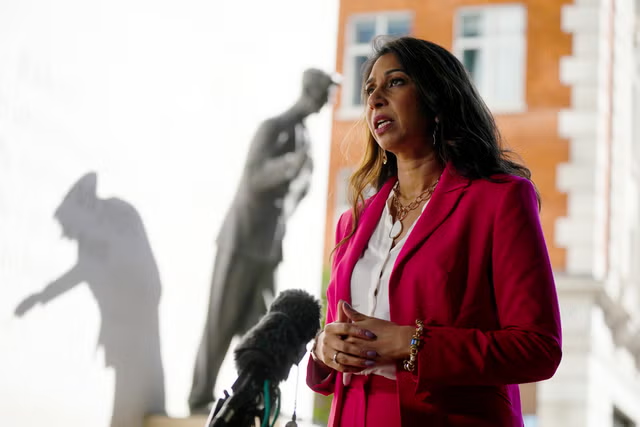Support truly
independent journalism
Support Now
Our mission is to deliver unbiased, fact-based reporting that holds power to account and exposes the truth.
Whether $5 or $50, every contribution counts.
Support us to deliver journalism without an agenda.

Louise Thomas
Editor
Wes Streeting has said he is optimistic ahead of talks on Tuesday with striking junior doctors, describing the change of government as “an important reset moment” in relations between the government and the British Medical Association (BMA).
The newly-appointed health secretary reiterated his stance from the general election that the union’s demand for a 35 per cent pay hike as unaffordable, but said there is “a whole range of issues” beyond pay junior doctors are struggling with.
Speaking at the Tony Blair Institute’s (TBI) Future of Britain conference in London, Mr Streeting said: “Am I optimistic? Yes. This is an important reset moment in the relationship between junior doctors and their government.

“In opposition we were clear the headline 35 per cent pay demand is not one we can afford, and that has not changed,” he continued. “But the reason we were so blunt in opposition… was about showing them the respect they are due, and a key ingredient of respect is honesty.”
Mr Streeting said that aside from pay he will help junior doctors with how they are treated by the NHS, adding that he is “genuinely angry” about their placements, rotations and the lack of flexibility shown to staff.
Medics from the British Medical Association (BMA) are to meet with Department of Health and Social Care (DHSC) officials on Tuesday afternoon to hammer out a deal to see an end to strikes that have been causing widespread disruption across the health service.
Officials from the union have previously said that they expect the conversation could be “tough”.
But the BMA’s junior doctors committee has said Labour comments about pay rises being a “journey and not an event” align with their pay restoration goals.
Health leaders urged the Government to resolve the dispute as a “priority” after it emerged that tens of thousands of appointments had been postponed as a result of the latest strike.

NHS England said 61,989 appointments, procedures and operations were postponed as a result of the walkout from June 27 to July 2.
The strike was the 11th by junior doctors in 20 months after junior doctors complained their pay has been cut by more than a quarter over the last 15 years and have called for a 35 per cent increase.
Also at the conference, Mr Streeting offered a damning verdict of the state of the NHS after 14 years of Conservative government, promising “we are not going to let them forget the damage they have done to our country”.
“What they have had in DHSC is a hell of a lot of instability, and just moving from one health secretary to another, one set of ministers to another, breeds instability and indecision,” he said.
He added: “They also took this country through a deadly pandemic, and they have lacked direction, they have lacked leadership, they have lacked a recognition of the pain that they’ve endured.
“And I think there is again an opportunity for an incoming government to recognise all of those things, but also to lift people’s sights to the horizon and make people excited again about the future.”
Also in the Q&A with broadcaster Jon Sopel, Mr Streeting declared the health department “an economic growth department”. The health secretary said the health of the nation and the economy are “inextricably linked” and promised to not just get people back to health, but back to work as well.
“We will not only be enabling people to live well and to live well for longer, but to contribute more to our country,” he said.
Disclaimer: The copyright of this article belongs to the original author. Reposting this article is solely for the purpose of information dissemination and does not constitute any investment advice. If there is any infringement, please contact us immediately. We will make corrections or deletions as necessary. Thank you.



